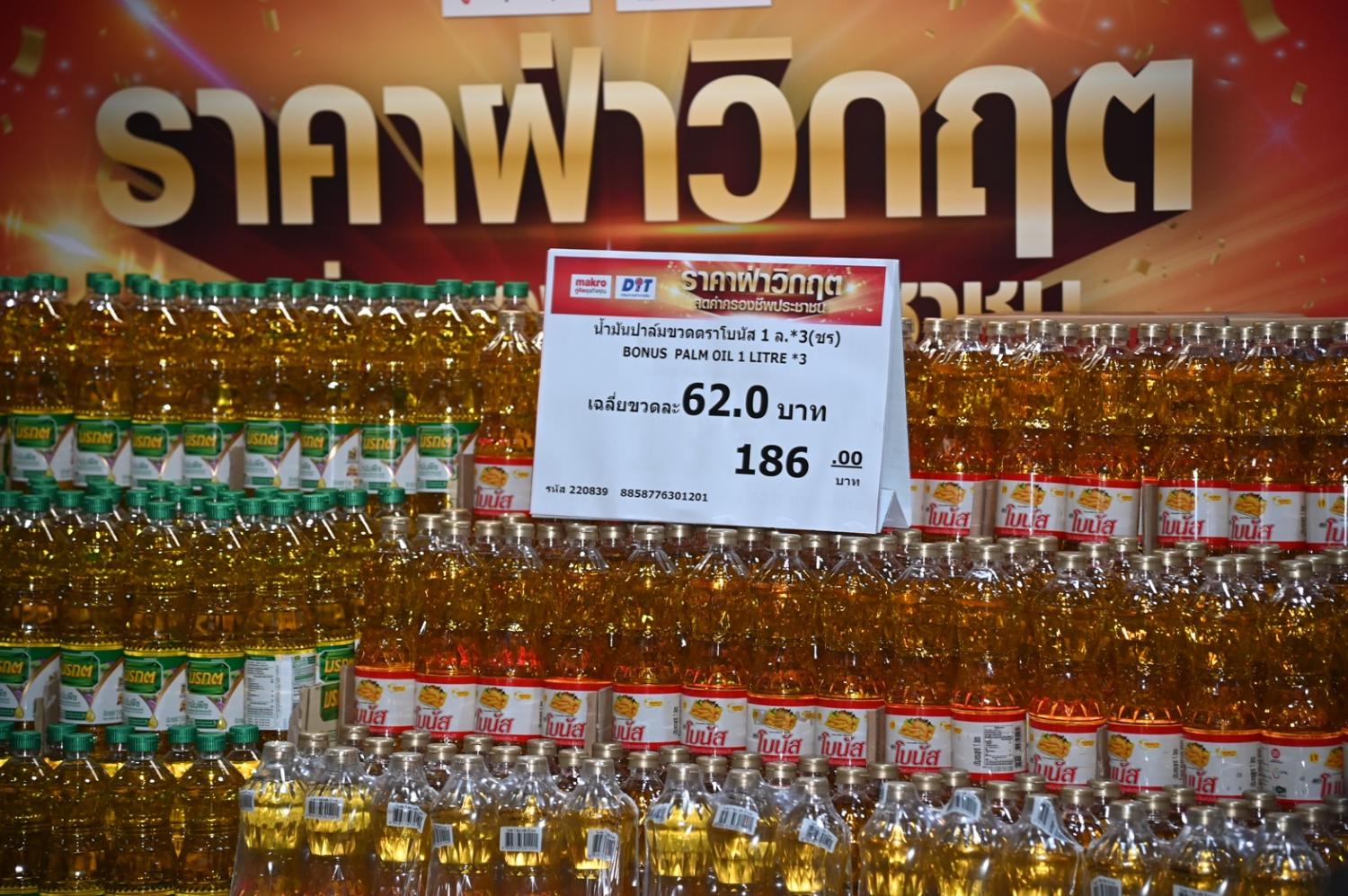
Prices of palm oil for cooking are likely to dip further next week after manufacturers, department stores and modern trade outlets on Thursday agreed to cut the price of bottled palm oil by 5-6 baht per litre to 62 baht per bottle, in line with lower production costs and improving domestic stocks.
According to Commerce Minister Jurin Laksanawisit, the Internal Trade Department is scheduled to meet again with manufacturers, department stores and modern trade outlets next week to discuss the possibility of further cuts to the retail prices of domestic cooking palm oil.
The higher level of supply means the prices of domestic fresh palm nuts are now quoted at 7-8 baht per kilogramme, down from 9-12 baht per kg in May, while crude palm oil prices fell to 41 baht per kg from 60-64 baht in May.
The country's crude palm oil stocks improved to 200,000 tonnes after plunging to 180,000-200,0000 tonnes in May. The country deems 300,000 tonnes to be a safe level for stocks.
In 2022, fresh oil palm nut production is estimated to reach 17.9 million tonnes, an increase of 5% compared with last year's season.
Mr Jurin said he ordered provincial commerce officers nationwide to monitor the prices of essential products to keep them in line with production costs. Officers have been told to inspect the prices of goods and food nationwide to ensure merchants sell products according to displayed price tags.
The ministry vowed to put price caps on 18 consumer products for as long as possible to prevent an impact on consumers.
The products with price caps are: instant noodles, fresh and raw cooking materials such as meat and eggs, canned food, packaged rice, seasoning sauces, vegetable oils, soft drinks, dairy products, electric appliances, detergents, fertilisers, insecticides, pet food, steel, cement, paper, pills and medical supplies.
Despite producers' insistence on the need to raise their prices to cope with higher production and raw material costs, the Commerce Ministry remains adamant that prices should remain frozen.







